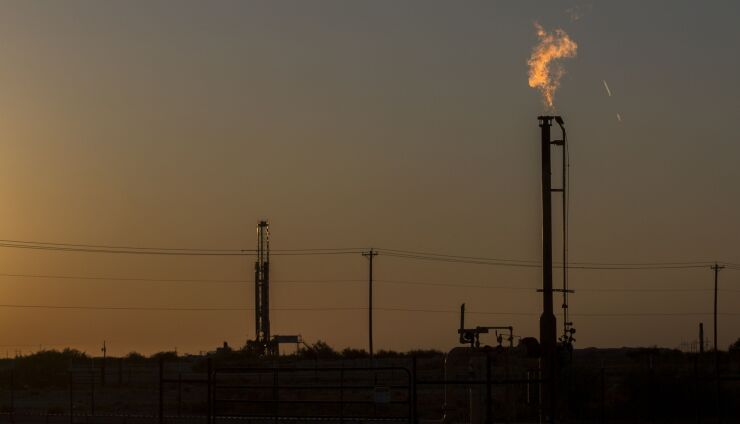Texas lawmakers are eyeing an endowment to aid universities not receiving revenue generated by a prolific oil and natural gas producing region, which recently dodged a near-term federal crackdown on pollution.
The state Senate's $130 billion budget bill for the fiscal 2024-25 biennium introduced Wednesday includes $2.5 billion to create an endowment for schools not benefitting from the Permanent University Fund. Only the University of Texas and Texas A&M University are supported by the fund, which earmarks some revenue to pay debt service on their bonds.

Royalties and leases from university lands in the Permian Basin produced $2.1 billion for the fund in fiscal 2022.
Texas Lt. Gov. Dan Patrick, who heads the Republican-controlled Senate, cited the large amount of money in the fund when he included new endowments in his list of priorities for the 2023 legislative session, which began last week.
"We have other great universities like Texas Tech, like University of Houston, like others around the state that need additional help," he told reporters in late November.
Republican State Sen. Charles Perry said Wednesday he doesn't envision the legislature will be willing to set up endowments for other universities out of the Permanent University Fund, adding there may be other ways to provide them with additional money.
The University of Houston is seeking a state-supported endowment of at least $1 billion that would utilize the state's surplus and not the Permanent University Fund, according to Shawn Lindsey, the school's associate vice president of media relations.
Texas is forecasting a
Meanwhile, top state officials have been fighting a potential move by the U.S. Environmental Protection Agency to designate parts of the Permian Basin out of compliance with national air quality standards, saying it could curtail production, thereby
Gov. Greg Abbott said earlier this month the federal agency had removed a plan to impose a discretionary redesignation for the basin located in west Texas and southeast New Mexico.
The EPA said it had not decided to halt the plan. "Rather, we have placed it in the 'pending' portion of the regulatory agenda to focus on more near-term statutory, court-ordered and other actions," a spokesperson said in an email, adding the removal of an action from that agenda requires a notification in the Federal Register.
The
An annual distribution of investment returns as well as surface income from land leases for grazing, easements, and other uses go into the Available University Fund, which is used to pay debt service on bonds and notes issued by the two systems for capital projects.





